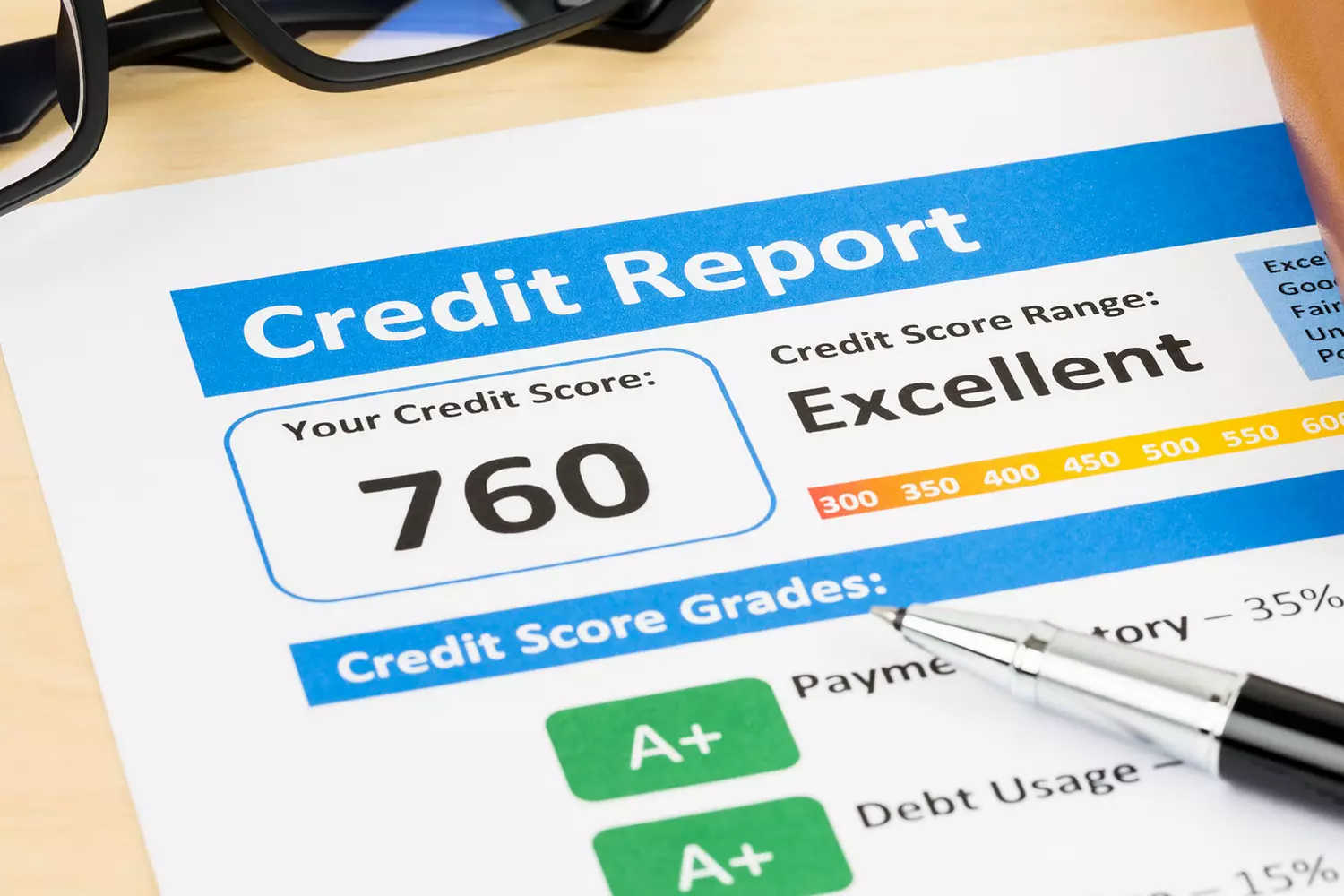How to Build a Good Credit History in the USA
Learn what a credit history and credit score are, and how to build and improve them. This simple and clear guide is designed for immigrants and newcomers, offering tips on using credit cards, paying off debt, and understanding the key aspects.
America runs on credit — everyone knows that. But how do Americans manage to avoid drowning in debt? We’ll help you navigate this complex system without getting lost in technical jargon. In this new article from American Butler, we’ll explain everything you need to know about the U.S. credit system — simply, accessibly, and with no unnecessary details.
We’ll explain why credit history is important and how to build yours from scratch, while also providing a handy credit score chart and useful tips on smart credit card usage. Read on to learn how to turn credit from a financial burden into a convenient tool.
A good credit score opens doors to lower interest rates and better loan terms. The higher your score, the less you’ll pay in extra fees.American Butler
What Does Credit History Affect in the USA?
Credit history in the U.S. is vastly different from what it is in other countries. For example, in Russia, it’s more like a background check used only for loan approvals. In the U.S., however, your credit history is a full-fledged financial report that even government institutions view as a reliable measure of a person’s trustworthiness.
To help you understand why you need a credit history and why it’s important to use not just debit accounts, let’s take a look at the areas where a good credit score makes life easier:
- Housing Rental Costs:
With a good credit score, you’ll only need to pay minimal security deposits in addition to your monthly rent — or you might not need to pay any deposit at all. Without a strong credit history, landlords may either deny your rental application or require a security deposit equal to another month’s rent. - Contract Terms:
This applies to everything from insurance policies to mobile phone plans. The better your credit history, the lower your costs and the better your terms. The same applies to utility companies — not every provider is willing to work with someone who has a poor credit history. - Loan Interest Rates:
The higher your credit score, the lower your interest rates on loans (mortgages, car loans, personal loans, etc.).
And that’s not the full list. Since a credit history is essential in the U.S., let’s look at how to build one.

How to Open a Credit Account in the U.S.
To open a credit account, you’ll need:
- Passport;
- Visa;
- SSN (Social Security Number).
Some banks are willing to work with newcomers and may open an account even before you receive your SSN, but you will need to provide it later.
When you open your first credit account, the bank won’t give you a line of credit right away. Instead, you’ll start by “playing” with your own money. You’ll apply for a Secured Credit Card — a credit account where you deposit your own funds and spend them as if they were credit. This is called a security deposit and typically starts at around $300, but you can deposit more if you like.
Over a set period (usually 3 to 12 months), the bank monitors your activity on the card. If you demonstrate responsible usage, the bank will return your security deposit and increase your credit limit, improving your credit score in the process.

Credit Score: Points Scale
Your credit score, or credit rating, is calculated by specialized agencies based on your credit limits, payment history, and any missed payments. You can check your credit score on sites like www.creditkarma.com, although they provide only an estimate.
Even when you first arrive in the U.S., your credit score isn’t zero. The minimum score is around 630 points.
- 600-630
Minimum. Essentially, this is considered as having no credit history. - 630-690
Fair. You may have a credit limit between $300 and $1,000, which can increase with no late payments. - 690-720
Good. Your credit limit could increase to $2,000-$3,000, and your trust with banks grows. - 720-850
Excellent. Credit limits around $5,000 per account are available, with lower interest rates and access to bonuses. - 850
Perfect. You’ll have access to the full range of benefits of the U.S. credit system.

Factors That Affect Your Credit Score
In addition to your credit score, there are several other important indicators of financial reliability:
- 01. Payment History:
Whether or not you pay your bills on time is the most important factor affecting your credit score. If you consistently make payments on time, your score will improve. Even one missed payment, however, can significantly lower your score. - 02. Credit History Length:
Banks generally prefer to work with those who have a credit history of at least five years. The ideal credit history is considered to be around eight years long, which gives lenders a good indication of whether you’re responsible with your finances. - 03. Number of Credit Lines:
The more credit lines you’ve managed well (including non-bank transactions such as rent or installment payments), the better. The ideal scenario is about 15-20 credit lines over 5-8 years of history. - 04. Credit Utilization:
This is the ratio of your debt to your overall credit limit. Experts recommend keeping your credit usage below 30% of your available limit. For example, if your total credit limit is $10,000, aim to use no more than $3,000. Opening new credit lines can help lower your utilization percentage, but be careful not to accumulate too much debt. - 05. Types of Credit:
Having a mix of different credit products (credit cards, mortgages, car loans, personal loans) demonstrates to lenders that you can manage various types of financial commitments. - 06. New Credit:
The number of new credit applications you make also affects your score. Each time you apply for a new credit line or card, a hard inquiry is placed on your credit history. These inquiries can temporarily lower your score, especially if you make several applications in a short period.
How much do Americans earn on average?
Credit Card Life Hacks
Building a good credit history can take 1-2 years if you follow some smart strategies. The faster you build your score, the more financial benefits you’ll enjoy.
- 01. Watch Your Debt Level:
Monthly credit card expenses should not exceed 20-30% of your credit limit. This shows banks that you aren’t desperate for money and have a stable income, which helps your score rise quickly. - 02. Pay Off the Full Balance:
Always pay off your entire statement balance at the end of the month. This helps you avoid interest and prevents late payments. - 03. Make Payments on Time:
Late payments can severely impact your credit score. Even one missed payment can lower your score and lead to higher interest rates. After 2-3 years of no late payments, you’ll start qualifying for credit cards with significant bonuses — including travel miles, discounts, special terms, and low interest rates. - 04. Open New Credit Lines Regularly:
Aim to open a new credit account every 12-18 months. This positively impacts your credit history and can be useful in everyday life. - 05. Don’t Close Old Accounts:
Even if you no longer use a card, don’t rush to close the account. Older accounts increase the average age of your credit history, which positively affects your score.
How to Improve Your Credit Score If It’s Already Low
- Check Your Credit History:
You have the right to check your credit report for free once a year through AnnualCreditReport.com. This is a useful tool for identifying errors that could be lowering your score. - Create a Debt Repayment Plan:
If you have outstanding debts, create a clear plan to pay them off. Start by paying down the smallest debts first to reduce your overall debt load. - Improve Your History with Small Payments:
Even if you can’t pay off a debt completely, make small regular payments. This helps avoid missed payments and shows lenders that you’re responsible.

TransUnion and Equifax: What Are They and How Do They Differ?
When discussing credit history in the U.S., TransUnion and Equifax are frequently mentioned. These companies, along with Experian, are the three main credit bureaus in the country. They specialize in collecting and analyzing information on the financial activity of every citizen, and based on this data, they calculate your credit score. Let's dive deeper into what these companies do and how they differ from one another.
What Are TransUnion and Equifax?
TransUnion and Equifax are credit bureaus that collect data on your financial transactions and credit history. These organizations receive information from banks, credit companies, utility providers, and other sources to generate your credit report.
Each bureau creates its own credit score based on the data it gathers, which may slightly differ depending on the sources of information. This means that the same person might have a slightly different credit score with TransUnion, Equifax, and Experian.
What Do Credit Bureaus Do?
- 01. Data Collection
TransUnion and Equifax collect data about your financial activities, including open credit accounts, debts, regular payments, and any delinquencies. - 02. Creating Credit Reports
Using the data they collect, credit bureaus generate detailed reports that show all of your credit obligations, payment history, and credit inquiries. - 03. Calculating Credit Scores
Credit bureaus use unique algorithms to calculate your credit score. This numeric value reflects your creditworthiness and helps banks and lenders assess the risk involved in lending you money.
Key Differences Between TransUnion and Equifax
Although TransUnion and Equifax perform similar functions, there are some notable differences between them:
- Credit Score Calculation Algorithms
Both bureaus use different models to calculate credit scores. While both may rely on the commonly used FICO model, they also have proprietary systems, which can result in slightly different scores. - Data Sources
While both TransUnion and Equifax collect data from various financial sources, the data they receive may differ slightly. For example, one bank may send its data only to Equifax, while another may work exclusively with TransUnion. This can lead to discrepancies in the credit reports each bureau produces. - Credit Reports
While the basic information in credit reports is similar, the formatting and structure of the reports may differ. This doesn’t affect the credit score itself but can impact how the information is presented and understood.
Why Is This Important?
It’s important to understand that banks and other financial institutions may request your credit report from one or all three bureaus (TransUnion, Equifax, and Experian) when assessing your creditworthiness. As a result, your credit score can vary depending on which bureau a lender checks.
Maintaining a good credit history with all three bureaus is key to ensuring your financial profile remains strong across the board.

Building and maintaining a good credit history is a long-term process that requires discipline and attention. However, if you approach it seriously, you can significantly improve your financial opportunities. Your credit score is the key to unlocking better loan terms, mortgage rates, and rental agreements in the U.S.
The specialists at American Butler are happy to provide consultations on this and many other aspects of life in the U.S. We organize tours across America and offer assistance to everyone starting a new life here.




































